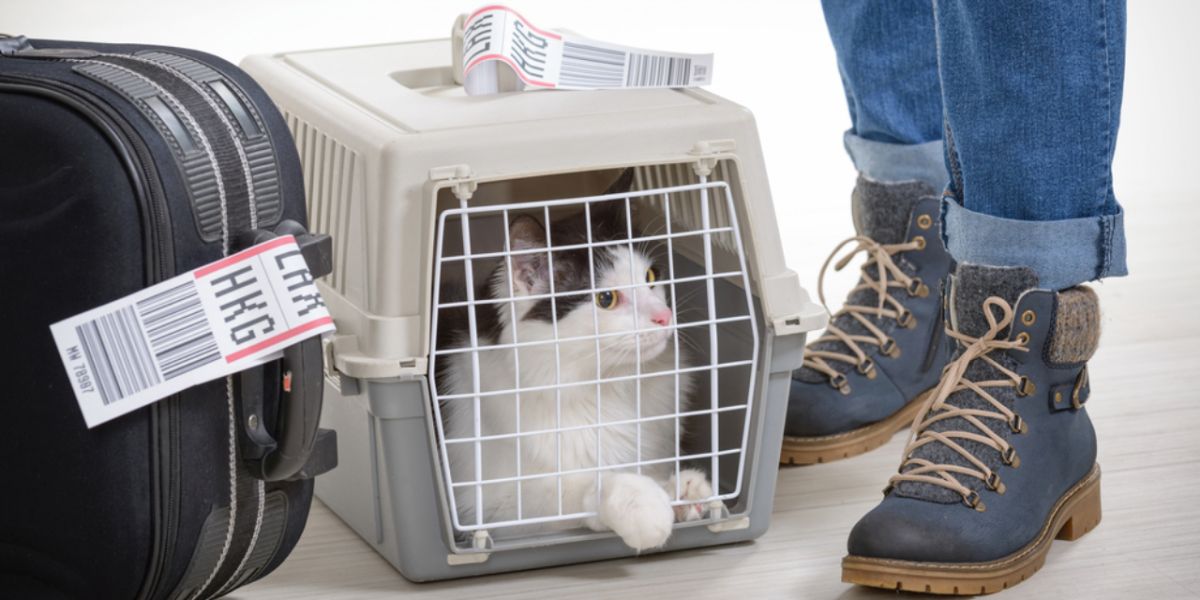
Traveling with your pet may seem complicated, but you should be able to get away with it with proper planning. If you're looking to travel with a pet animal to Italy, here is everything you need to know about the conditions and formalities to be respected for a smooth journey.

The rules differ depending on the animal's country of origin and the reason for travel.
Make sure you have all the necessary documents before you leave. Otherwise, your pet may be repatriated or quarantined.
Before traveling with your pet to Italy
Before leaving, make sure that your pet has received all the compulsory vaccinations, especially against rabies, that it is micro-chipped, and that it has a valid passport or a health certificate issued by an authorized veterinarian if it comes from a third country. In addition, you must have all the legal documents proving that your pet animal is fit to travel to Italy. These documents must comply with the European Union Regulation in force since 2013. The following requirements apply to dogs, cats, ferrets, small birds, aquatic animals, common reptiles, rodents and rabbits. Guide dogs are subject to the same requirements.
Microchipping your pet before traveling to Italy
All pet animals, including dogs, cats and ferrets, must be microchipped to enter Italy. This 15-digit microchip must meet ISO standards (in accordance with ISO 11784/11785). The date of installation and the number on the microchip must be stated on your pet's health certificate.
If the microchip does not meet the ISO standard, you will need to bring your scanner so that the chip to can be read at customs. If the chip cannot be scanned, your pet will be quarantined.
Good to know:
If your pet has already been vaccinated but does not have a microchip, it will need to be microchipped and re-vaccinated.
Vaccinating your pet before traveling to Italy
After being microchipped, all pets traveling to Italy must be vaccinated against rabies at least 21 days before departure to ensure the vaccination period begins. Pets coming from a country with a high risk of rabies must undergo a titration test. This blood test must be carried out in a laboratory recognized by the European Commission at least 30 days after the rabies vaccination. In case of a favorable result of the titration, the animal can travel to Italy after three months from the date of the blood sample. Find out more on the WHO website.
Good to know:
Here are some other rules for traveling with your pet to Italy, according to the official EU website:
- You can allow another person to accompany your pet, but you must collect it within five days of its arrival in Italy. In this case, the transport must comply with European health standards for animal trade, even if your journey is not for commercial purposes.
- You can travel to Italy with up to five pets. However, if you take more than five animals, you must prove that they are taking part in an event such as a competition and that they are over six months old. Again, European health standards for animal trade apply.
Obtain a health certificate for your pet before traveling to Italy
You do not need a health certificate if your pet is traveling for non-commercial purposes from another EU country to Italy. However, you must ensure your pet's vet has updated its pet passport.
Conversely, if your pet is traveling from a third country, an approved veterinarian must complete a non-commercial EU health certificate no later than 10 days before arrival in Europe, which certifies that the rabies vaccination has taken place or that a new vaccination is valid (in this case, at least 21 days before departure).
The certificate allows travel throughout the EU for four months from the date it was issued. In addition, a written declaration must be attached to the certificate stating that the journey within the EU is not for commercial purposes.
If your pet is traveling from a country with a high risk of rabies, in addition to the health certificate, a titration test, as mentioned above, will be required.
Note that there are specific regulations in different countries. For example, in the USA, the veterinarian must be accredited by the USDA, and the health certificate must be approved by the USDA office.
The European pet passport
Your pet will need a European passport to travel within the EU. This document includes the identification number of its microchip and proof of recommended and compulsory vaccinations.
Please note that the European passport is only valid for cats, dogs and ferrets. For all other pets, such as birds, aquatic animals, reptiles, rodents, or rabbits, check out the Italian national regulations.
The pet passport must be issued by an accredited veterinarian before departure if you are traveling from another EU country. If you are coming from a non-EU country, please refer to the previous paragraph on the health certificate.
The European pet passport is a lifetime passport, so once issued, it does not need to be renewed.
Other pets traveling to Italy
Pets animals, such as invertebrates, aquatic species, birds, reptiles, and small mammals, such as rodents and rabbits, must travel with their owner and be transported in appropriate containers to ensure their welfare and safety. In addition, the owner must be in possession of a health certificate if coming from a non-EU country, proving that the animal has been examined within 48 hours prior to travel.
If you are transporting a bird from a non-EU country, please refer to the current European regulation (2007/25/EC). Italy allows the movement of pet birds in batches of 5 maximum if they have a health certificate.
Transporting your pet to Italy
You can legally transport your pet by plane, boat, train or car to Italy. Ensure your pet is fasting at least two hours before departure, and always have fresh water on hand.
If your pet is traveling to Italy by air unaccompanied, it should arrive at an international airport.
If you wish to travel to Italy by ship, you will need to inform the company in advance. Requirements vary from one shipping company to another, with some allowing pets to be kept in cabins.
Arriving in Italy with your pet
Once you arrive in Italy, register with an accredited local vet as soon as possible. If you have traveled with your pet from a non-European Union country, you will also need to apply for a European pet passport.
We do our best to provide accurate and up to date information. However, if you have noticed any inaccuracies in this article, please let us know in the comments section below.








